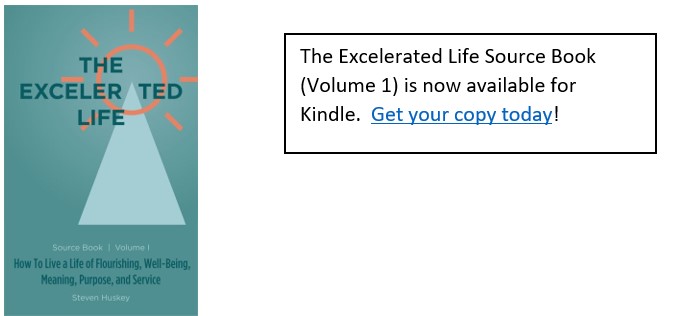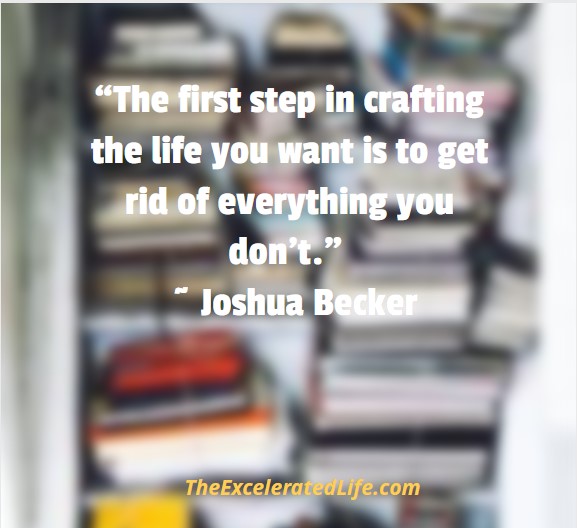Having more than enough is necessary to move up the self-actualizing hierarchy from basic physical needs, the need for safety, and the emotional needs of love and belonging, into the upper realm of esteem and self-actualization. And sometimes having less is a way to have more.
Title Photo by Andrea Piacquadio
Out Of Gas
Many years ago, I stopped at a local store to fill my car’s gas tank. As I waited for the tank to fill, I watched a woman at the next pump struggle to fill a gas can. I walked over and offered to help.
While I filled the can, she explained her situation. She told me she had run out of gas a short way from the gas station. A policeman stopped and gave her a ride to the store. She said she had a pre-op appointment with her doctor that morning and had stayed the night with her mother because it was closer to the doctor’s office. Now, she was in danger of missing this important meeting with her doctor because she had run out of gas.
This is an example of why we need to keep reserves in all the areas of our lives: time, money, energy, supplies, and other resources.
An Important Distinction
One important reason for having these reserves can be seen in Maslow’s Hierarchy of Needs, which shows that we must have our basic physical and psychological needs met in order to move up the pyramid to self-actualization and transformation. Having reserves to meet the needs in the lower levels – such as food, sleep, exercise, resources, friend and family relationships, among others – frees us up to move into the higher levels of self-development and self-actualization.
But we need also to draw the distinction between having enough, and, as Thomas Leonard says, more than enough [Leonard], and having an excess of stuff, aka, clutter. “You deserve a constant, secure supply of everything it takes to have a satisfying life.” [Leonard] And you deserve an orderly, mess-free, and clutter-free life. The two are not mutually exclusive.
Identifying Clutter
First, let’s identify what we mean when we talk about clutter. Basically, clutter is anything that distracts us from our number one thing. You have a purpose in life (and I hope you know what yours is by now). Clutter monopolizes your attention and hinders you from fulfilling your purpose.
Keep in mind, too, that clutter takes many forms.

Types of Clutter
Physical clutter is the easiest to identify because it is material. You can see it, touch it, hold it, and trip over it when it’s piled in the hallway. Physical clutter comprises such things as clothes, utensils, tools, toys, books, supplies, keepsakes, knick-knacks, bric-a-brac, souvenirs, photos, papers, forms, hobby materials, and so forth.
As the name implies, calendar clutter shows up on our calendars as meetings (particularly unnecessary ones), obligations we’re no longer interested in or have been guilted into, and social events we don’t want to attend.
Mental clutter is not as obvious as physical clutter, but it can clog our brains and distract us from our purpose. Mental clutter includes guilt, worry, focusing on past mistakes, fear, and other distractions.
We are encouraged by much of modern culture to add to our lifestyle clutter. Instead, we ought to aim, as Thomas Leonard enjoins us, to “get a fulfilling life, not just an impressive lifestyle.” [Leonard] A lifestyle is based on externals. Lifestyle clutter comes to us as bigger and more: houses, cars, bank accounts, etc., etc. (Some of which we also see as physical clutter.)
Climbing the Pyramid
To review, these are the levels of Maslow’s hierarchy of needs. [McIntyre]
At the lowest level reside physical needs: air, food, water, sleep, exercise, various bodily functions.
On the next step are safety needs: security of health, resources, employment, family, property.
Next comes the needs for love and belonging: friendship, family, sexual intimacy.
As we climb higher, we begin to meet our need for esteem: confidence, achievement, respect for others, respect by others, self-respect.
And on the top level, comes self-actualization and the need for: creativity, morality, problem-solving, lack of prejudice, acceptance of facts.
Having ample reserves helps you ensure you are meeting the needs in the lower levels of the pyramid so that you can move up to the upper levels. And you can have ample reserves yet still do without the clutter. Less clutter means more space, more time, more energy, and more money. In other words, you build reserves of these important resources.
Less Clutter, More Space
The first thing having less clutter gives you is more space.
- With physical clutter gone, you have more physical space.
- Freeing up calendar clutter makes more space for meaningful and worthwhile projects.
- Reducing mental clutter gives you more “headspace”.
- Freeing yourself from lifestyle clutter means more free space to be who you desire to become.
Less Clutter, More Time
Reducing clutter increases the time you can give to other pursuits.
- Less physical clutter means less time maintaining and caring for stuff.
- Reduced calendar clutter means less time spent in useless meetings or worthless endeavors.
- When you reduce mental clutter, you spend less time worrying about things that likely won’t happen.
- Removing lifestyle clutter equals less time keeping up with the Jones.
Less Clutter, More Energy
- Less physical clutter again means fewer things to clean and maintain, energy you can use elsewhere.
- When you remove calendar clutter, you have fewer energy-draining activities and more energy-building activities.
- Reduced mental clutter equals less worry, less rumination, and more energy.
- Less lifestyle clutter results in less energy spent keeping up with you-know-who.
Less Clutter, More Money
Reducing clutter can help you save money.
- Physical clutter: This one is obvious. When you have less, you spend less. Result – more money in your pocket.
- Calendar clutter: If your calendar is packed, you are likely spending money on fast food meals and other options that you don’t have time to do yourself. Time is money, as the saying goes. With less calendar clutter, you don’t have to spend as much on time-saving options.
- Lifestyle clutter: When you “get a fulfilling life, not just an impressive lifestyle”, you have no need to spend on things to impress others.

What To Do – First Steps
If you’ve never dealt with the clutter in your life, or perhaps it’s been a while since you’ve done anything, here are some first steps to consider.
- Go for the low-hanging fruit. Throw out anything that is obviously trash – broken toys, tools, appliances, etc., junk mail, useless papers, old catalogs and magazines, newspapers more than 3 days old.
- Remove and give away or throw away any clothes that don’t fit, that have needed repair for more than 6 months, or that you just don’t like and never wear.
- Clean off your desk at the end of each workday.
- When you bring in something new, remove something old. Don’t have more of anything than you need.
- Start small. Begin with one section of a room, or a closet, or one area of the closet, or one drawer. Whatever you choose, pick an area and begin. Just getting started in one small area can give you the momentum to carry the job through to completion.
What To Do – Next Steps
Once you’ve done the easy things, try some of these ideas to take your decluttering to the next level.
- Plan time for clean-up after you finish a project or activity. Cleaning up immediately after you finish is much easier. The longer you leave a mess to clean up, the more daunting it becomes and the harder the job becomes in your mind.
- Clear out the medicine cabinet. Go through your old prescriptions and over-the-counter medications. Toss out everything that is past the expiration date. Throw away any unused prescription medication that you no longer take.
- Clear the mental clutter.
- Get your “to-do” list out of your head and onto paper.
- Make a list of the things you are tolerating and begin cleaning up those items.
- If you have goals or projects that are more than 1 year old (and that you aren’t actively pursuing), let them go.
- Give everything a home. Keep like items together and store them near where you use them. Before you bring home something new, consider where you will keep it.
- Give names to places (the sock drawer, the cereal shelf, etc.) and share the names with family members (or label the shelf, drawer, bin, etc.) so everyone knows where a particular item lives.
Advanced Steps
- Turn the clothes hangers around backward in your closet. When you wear a garment, re-hang it with the hanger facing the right way. After 1 year, remove and give away any garments on hangers that are still hanging backward.
- If there are things you haven’t used but can’t bring yourself to give away just yet, put them in a container and put them away. After 6 months, if you haven’t opened the container, give it away. (Don’t even open it to see what’s in there.)
- Create a mail center for incoming mail and other papers. You can use a small vertical file or wire rack as temporary storage for keeping bills to be paid and receipts to be filed. Immediately toss any junk mail, flyers, or catalogs you aren’t interested in. (Shred any unwanted papers with potentially sensitive information.) Don’t let unopened mail pile up. Commit to going through your mail every 2 or 3 days
- Before you begin organizing a room, take time to plan the space. Rooms serve purposes: you cook in the kitchen, eat in the dining room, sleep in the bedroom, and work in the office. Remember how you had “centers” in kindergarten and grade school? There was probably an Art center, a Reading center, a Block center, and so forth. Each activity was conducted in a specified location and all the materials and tools you needed for the activity were stored in the Centers. Think of the different activities you do in the room or space you are organizing and set up “centers” for the activities. Keep the supplies and equipment you’ll need for the activity stored in the appropriate Center.
- Consider going minimalist, even if you don’t take the full plunge. You could choose to be a minimal minimalist. Check out Joshua Becker’s Becoming Minimalist blog.
Have Less To Have More
Having Excelerated Reserves™ moves us from a scarcity mindset to a place of abundance, having enough and more than enough to meet all our basic needs. The peace of mind that comes with getting these needs met allows us to focus on the upper levels of Maslow’s hierarchy, as we climb toward self-actualization.
Clutter on the other hand detracts from our peace of mind and well-being. So in terms of reserves, having less is a way to have more – more energy, more time, more space, more money, more peace of mind. Have enough and more than enough to meet your needs. Then have less to have more. That is embracing your Excelerated Life™!
How could having less help you have more?
Share your thoughts by leaving a comment below.
Excelerated Reserves™ — moving from scarcity to abundance — is one step in creating your Excelerated Life™, a life of flourishing and well-being, and a life of meaning, purpose, and service.
Read more about the Excelerated Life™.
Resources:
Leonard, Thomas. The 28 Laws Of Attraction. New York: Scribner, 1998.
McIntyre, Shannon. “Maslow’s Theory Revisited.” Greater Good Magazine. The Greater Good Science Center at the University of California, Berkeley, February 16, 2007. Web. May 7, 2022.
https://greatergood.berkeley.edu/article/item/maslows_theory_revisited



One Reply to “Have Less To Have More”